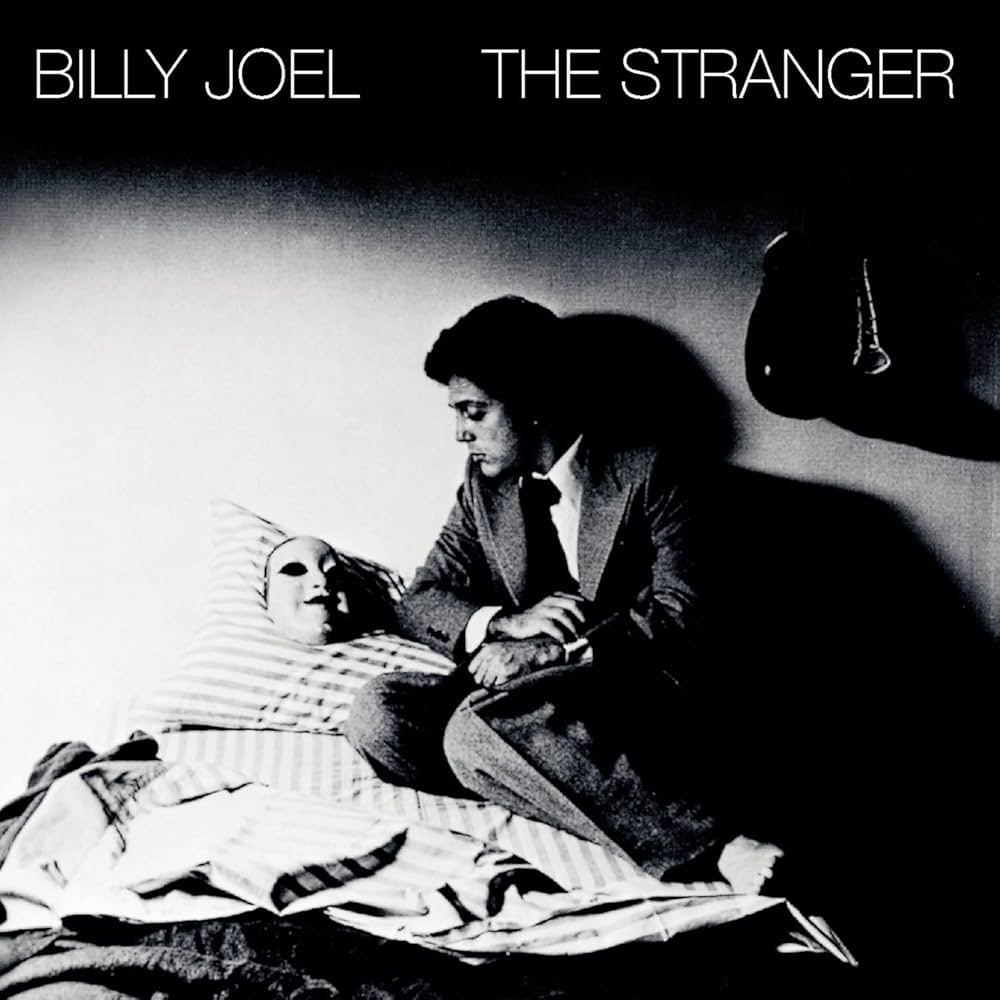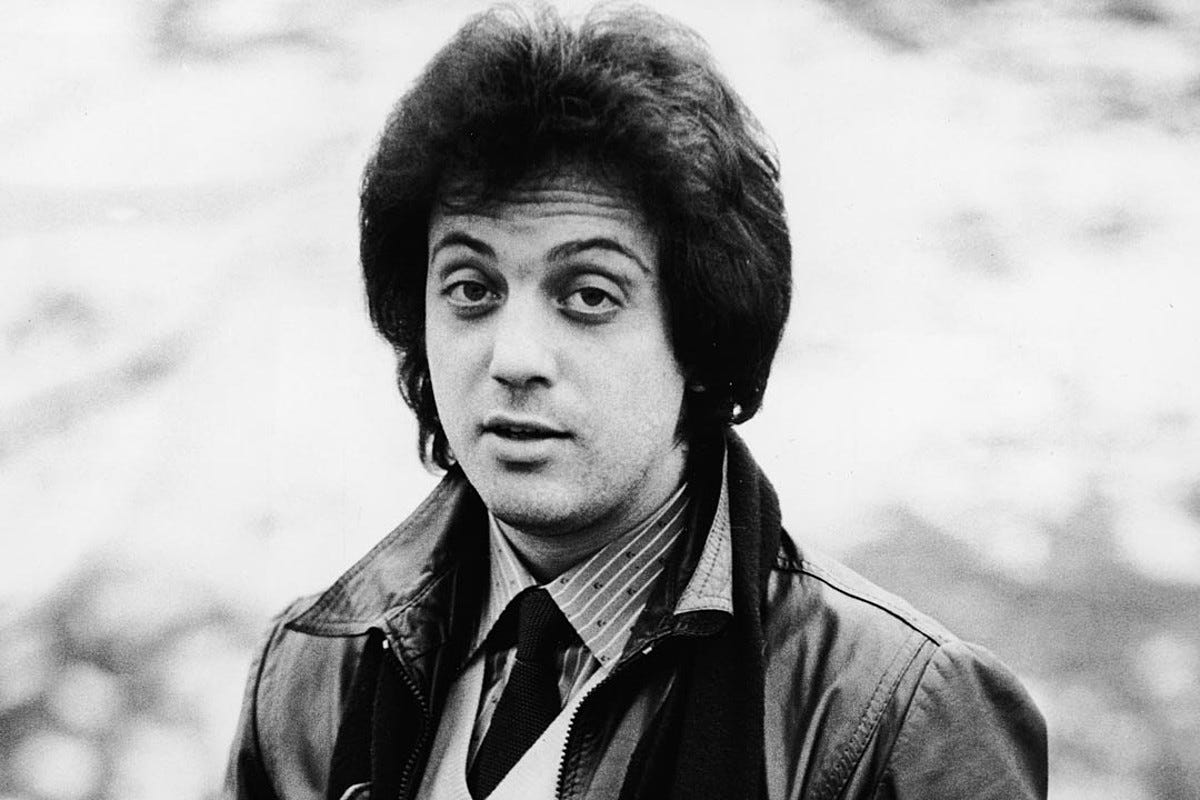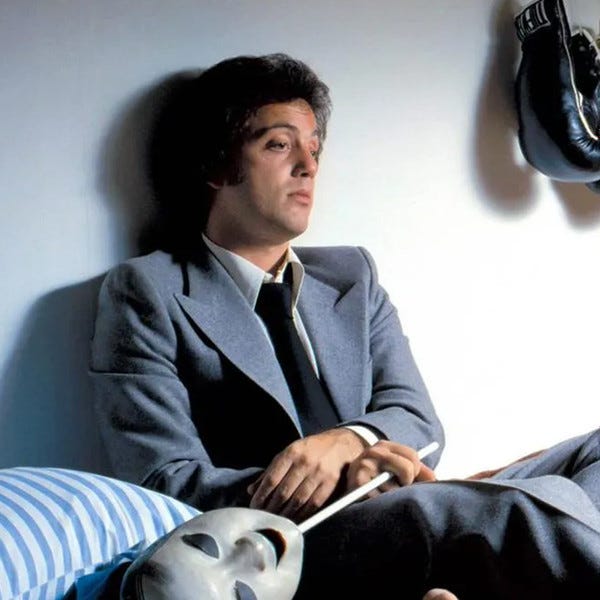Classic Album Review: The Stranger: Track-by-track review
Unmasking the Magic: How The Stranger Captures Life's Dreams, Doubts, and Desires
Released in 1977, The Stranger solidified Billy Joel's place in rock and pop with a masterful mix of ballads, rockers, and introspective tracks. Known for his talent as both a pianist and a lyricist, Joel used this album to explore themes of love, identity, and urban life, showcasing a storytelling approach that’s rich and relatable. Produced by Phil Ramone, The Stranger features nine tracks that capture both the personal and universal, creating a timeless work that has continued to resonate with fans for decades.
1. Movin' Out (Anthony's Song)
The album kicks off with this working-class anthem, a fast-paced rock tune about rejecting societal expectations. It’s gritty and vibrant, powered by Joel’s rhythmic piano and a sax riff that gives the track a bluesy, streetwise edge. The song’s commentary on materialism in American culture is sharp yet catchy, a theme that resurfaces throughout the album.
Opening with a pulsing, urgent piano riff, Movin' Out immediately sets the tone for the album with its critique of materialism and social expectations. The character of Anthony is emblematic of working-class America, striving for a version of success defined by possessions and status symbols. Joel’s lyrics highlight the absurdity of this pursuit, juxtaposing lines about Cadillacs and houses in Hackensack with his protagonist’s desire to break free. Musically, the song is built around a syncopated beat and honking saxophone riffs, mirroring the bustling energy and discontent of city life. The grit of Joel’s delivery adds to the authenticity, making it feel like an anthem for those caught in the grind of urban survival.
2. The Stranger
The title track is haunting and introspective, with a mysterious whistle opening that feels both inviting and unnerving. Joel explores the idea of duality, the "stranger" within us that we keep hidden from others. The lyrics delve into identity and self-acceptance, building to an intense piano-driven climax. It’s both musically and lyrically complex, with a jazz-rock blend that shows Joel’s versatility.
The title track combines Joel’s jazz and rock influences with a darkly introspective look at human nature. Opening with a distinctive whistle, The Stranger immediately sets a haunting, mysterious tone. The whistle is like a character in itself, representing the "stranger" side of us we don’t often acknowledge. Lyrically, Joel explores duality and identity, suggesting that everyone hides parts of themselves, even from loved ones. The song’s structure mirrors its theme, moving from a haunting, jazzy verse into an explosive rock chorus before retreating back into the eerie, introspective mood. This dynamic range gives the song a theatrical quality, underscoring the dramatic tension between the face we show the world and the "stranger" we conceal.
3. Just the Way You Are
One of Joel's most enduring love songs, Just the Way You Are, is a soft, sincere ballad that became an instant classic. Its smooth saxophone solo and warm melody make it feel like a heartfelt conversation, highlighting the theme of unconditional love. Although Joel himself grew to have mixed feelings about the song, its impact on listeners is undeniable, marking a high point of '70s soft rock.
This Grammy-winning ballad showcases Joel's ability to write vulnerable, earnest love songs. The smooth, laid-back arrangement complements the song’s gentle theme of acceptance, while Richie Cannata’s saxophone solo adds a touch of soulful warmth. Originally written as a gift for his then-wife, the song’s simplicity and directness make it relatable to anyone in a loving relationship. Musically, it is soft rock at its finest, with the steady, unobtrusive rhythm allowing Joel’s vocals to take centre stage. While Joel himself became somewhat disenchanted with the song over the years, its universal message of loving someone "just the way they are" ensures its timeless appeal.
4. Scenes from an Italian Restaurant
A standout track, Scenes from an Italian Restaurant is a mini-epic, telling the story of old friends reconnecting over a meal and reflecting on the ups and downs of life. The song shifts tempos and styles, weaving through jazz, rock, and balladry, making it feel like several songs in one. Joel’s storytelling is at its peak here, delivering a vivid portrait of suburban life and youthful dreams.
This song is a tour de force, showcasing Joel’s skills as both a storyteller and a musician. Spanning over seven minutes, Scenes from an Italian Restaurant feels like a musical journey, complete with distinct sections that shift between jazz, rock, and balladry. Joel tells the story of Brenda and Eddie, high school sweethearts who seemed destined for greatness but ultimately drift apart as life unfolds. The song reflects on nostalgia and the bittersweet nature of growing up, with Brenda and Eddie’s story capturing the universal theme of dreams unfulfilled. Musically, the song is ambitious, with each section painting a different scene in the "restaurant" of Joel’s imagination. This shifting structure gives the song a cinematic feel, almost like a short film set to music.
5. Vienna
This is perhaps one of Joel's most poetic songs. "Vienna" is reflective and gently cautionary, encouraging patience and a balanced outlook on life. The song’s delicate melody and lyrics about ambition and self-awareness offer a sense of calm and wisdom, making it a fan favourite that still resonates deeply with listeners today.
Vienna is perhaps one of the album's most philosophical tracks, blending a gentle piano melody with Joel’s reflective lyrics. In this song, Joel encourages the listener to take a slower, more balanced approach to life. The line "Vienna waits for you" is his reminder that life’s achievements don’t have to happen all at once. Musically, the song is subtle and restrained, with a delicate waltz-like rhythm that mirrors the song’s call for patience. The lyrics carry a sense of wisdom beyond Joel’s years, making Vienna a quiet anthem for those who feel pressured to rush through life.
This upbeat track combines Joel's rock and roll roots with a provocative message about breaking free from restrictive norms. The song’s infectious rhythm and playful melody create a contrast with its controversial lyrics, which encourage a young Catholic girl to live in the moment rather than following the strict rules of her upbringing. With a bright, toe-tapping beat and energetic delivery, Joel captures the rebellious spirit of youth. Despite its controversial reception, the song’s catchy hook and mischievous tone have made it one of Joel’s most enduring hits.
6. Only the Good Die Young
With its catchy, upbeat tune, Only the Good Die Young is a playful and rebellious song about love and lust. Its controversial lyrics caused some backlash, but the energy and cheekiness are infectious. Joel’s clever wordplay and the bouncy rhythm make it an anthem of youthful defiance and the desire to live life to the fullest.
This upbeat track combines Joel's rock and roll roots with a provocative message about breaking free from restrictive norms. The song’s infectious rhythm and playful melody create a contrast with its controversial lyrics, which encourage a young Catholic girl to live in the moment rather than following the strict rules of her upbringing. With a bright, toe-tapping beat and energetic delivery, Joel captures the rebellious spirit of youth. Despite its controversial reception, the song’s catchy hook and mischievous tone have made it one of Joel’s most enduring hits.
7. She's Always a Woman
A tender yet bittersweet ballad, She's Always a Woman explores the complexities of love and admiration. Joel’s lyrics are both adoring and honest, painting a picture of a woman who is as strong as she is loving. The soft piano and understated instrumentation add a timeless quality to the track, making it feel deeply personal.
One of the album's softer, more introspective moments, She's Always a Woman, is a tribute to the complexity of women and relationships. Joel’s lyrics explore the idea that true love appreciates and accepts a partner’s flaws as well as their strengths. Musically, the song is sparse, relying on a delicate piano melody and Joel’s tender vocals to convey its message. The lyrics have a gentle irony, acknowledging the paradoxes and contradictions that can exist in love. There’s a timeless quality to the song’s arrangement, with the simplicity of the piano underscoring the sincerity of Joel’s words.
8. Get It Right the First Time
This is one of the album’s more upbeat tracks, with a jazz-influenced groove and a horn section that gives it a lively feel. It’s a song about seizing opportunities and making the most of first impressions, embodying Joel’s knack for infusing everyday sentiments into catchy tunes. While perhaps not as well-known as some of the other tracks, it’s an enjoyable addition that adds balance to the album.
This track is one of the lesser-discussed songs on the album, but it’s a charming exploration of the pressure to make a good first impression. The song is more upbeat, with a jazzy, bouncy feel that adds levity to the album’s heavier themes. The lyrics reflect the universal fear of failure and the importance of taking chances, resonating with anyone who’s ever felt the weight of high expectations. Though it might be overshadowed by some of the album’s more iconic tracks, it’s a solid addition that provides a bit of lightness to the album’s tone.
9. Everybody Has a Dream
The album closes on a soulful note with Everybody Has a Dream, a gospel-inspired track that returns to the idea of finding inner peace and fulfilment. It’s an uplifting, reflective end to the album, reminding listeners of the importance of dreams and aspirations. The song’s gradual buildup and powerful vocals make it a satisfying conclusion to the album.
Everybody Has a Dream is a soulful, gospel-inspired closer that echoes the album’s themes of aspiration and self-discovery. The song’s slow build and hopeful lyrics serve as a fitting conclusion, reminding listeners that dreams are worth holding onto despite life’s challenges. Joel’s vocal delivery is passionate and heartfelt, giving the song an almost hymnal quality. The backing vocals and gospel-inspired instrumentation create a sense of uplift and closure, leaving listeners with a sense of optimism.
The Stranger is a near-perfect balance of rock, pop, and jazz influences, with Joel’s storytelling and piano work at the forefront. The album not only marked a turning point in his career but also helped define an era of pop-rock with its emotional depth and relatable themes. From ballads like Just the Way You Are to introspective tracks like Vienna and anthems like Movin' Out, each song contributes to an album that feels cohesive yet varied.
The Stranger remains one of Billy Joel’s most celebrated works, a true classic that highlights his skills as a songwriter and performer. Its themes of identity, love, and aspiration continue to resonate, making it an album that not only captured its time but also transcends it.
Joel’s piano and vocals are at the centre of each track, but his ability to move seamlessly between genres—ffrom rock to jazz, pop, and even gospel—mmakes The Stranger a dynamic and richly textured work. The album invites listeners not only to enjoy the music but to reflect on their own journeys, making it a lasting classic.






